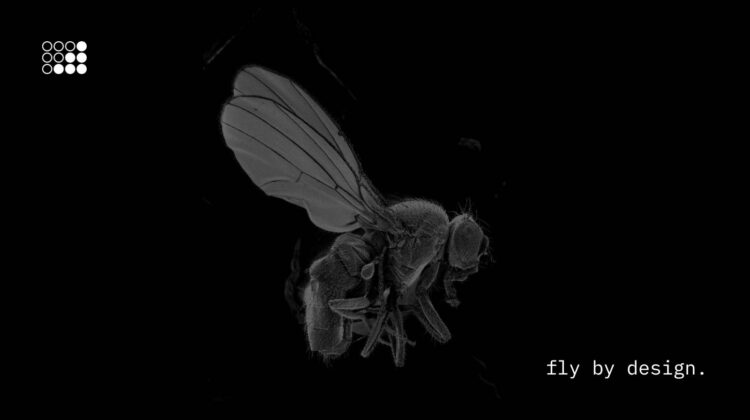
Future Fields is a startup based in Edmonton looking to change the world with fruit flies.
The fly biotechnology company, founded in 2018, created a biomanufacturing platform called the EntoEngine, which is the first synthetic biology system in the world to use fruit flies for recombinant protein production.
“Powered by people and fly by design, we’re equipping industries with the biomolecular tools they need to sustainably, ethically, and economically conduct great science,” the company stated.
The EntoEngine leverages an “approach that uses fruit flies and not giant steel tanks.” This is in response to a “critical need to shrink the cost, increase the supply, and diminish the carbon footprint of bioreactors.”
“Like the scientists looking to understand complex biology before us, Future Fields turns to the common fruit fly in search of a new solution expanding on what we have learned from traditional growth factor production models,” the company says. “Our EntoEngine takes advantage of a century’s worth of genetic knowledge, a short reproduction cycle, and the sustainable rearing methods of Drosophila melanogaster to create what we see as the future of recombinant protein production.”
Fly-based technology is all part of the startup’s effort toward sustainability across Alberta, throughout Canada, and around the world.
For example, Future Fields last year became a member of 1% for the Planet, a global network of partners tackling environmental issues, and of the United Nations Global Compact initiative, which commits to aligning strategies and operations with universal principles on human rights, environment, and more.
“Acting on the climate crisis is one of Future Fields’ core values,” stated chief executive officer Matt Anderson-Baron. “Creating sustainable biomolecules for science industries is our way of combating climate change.”
The global operating supply of bioreactors is dwarfed by the demand of industries that need them, says Anderson-Baron, and this infrastructure problem is only getting worse.
“We’ve passed a tipping point where it’s scaling, not creating, biotech-based products that is the fundamental hurdle for founders, companies, and entire industries,” the cofounder warns.
He says his company has been able to commercialize products because the investment is minimal and the product is scalable.
“Our approach is thirty times faster than tanks and more or less infinitely scalable with minimal investment,” he says. “As we unlock more proteins, we can scale production capacity while continuing to service over 60 companies in cellular agriculture and beyond.”
By using flies, Future Fields carries advantages over the traditional industry approach of big steel tanks. It can own its supply chain, for example, while having better control over the quality of product.
Founded initially to transform the creation of cultivated meat, Future Fields is now adding a suite of human recombinant protein products created through EntoEngine. These include a clinically approved protein for wound healing and bone graft additive and a hormone that spurs muscle development and maintenance.
To pursue so many ambitious projects at once, the Alberta company has attracted critical funding from a diverse array of sources to fuel the next phase of growth.
In addition to securing $5 million from the Government of Canada, Future Fields recently raised several million dollars in capital from private investors, including Toyota Ventures, Builders VC, AgFunder, Amplify Capital, angel investors, and more.
“Biotechnology is bubbling with innovation, but to date, little funding has gone to biomanufacturing production infrastructure at scale,” says Jim Adler, Founder and General Partner of Toyota Ventures. “Traditional bioreactors are expensive, wasteful, and capacity-limited.”
It is high time for “disruptive innovation,” he believes.
“We applaud Future Fields’ cost-effective, sustainable, and scalable bio-manufacturing platform to fuel biotechnology’s next life-saving inventions,” Adler stated.
Future Fields will use this vote of confidence and capital influx to hire key personnel and build out its first production facility, according to a statement from the startup, which will enable the production of recombinant proteins at greater scale.
The facility will be located beside corporate headquarters in Edmonton, the company says, signalling Future Fields’ intention to build and grow within Alberta’s innovation ecosystem.


Leave a Reply